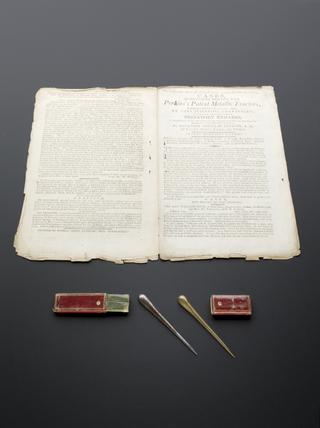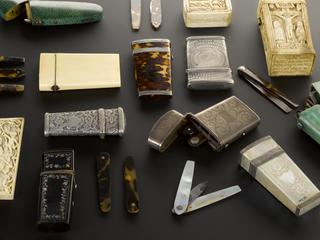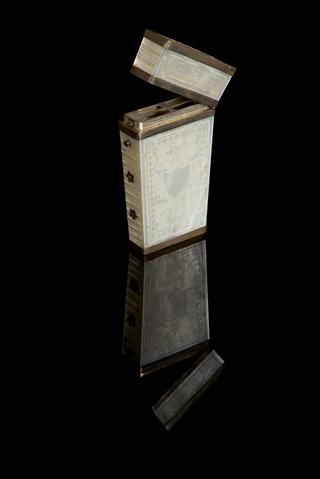
Therapeutic Exercise Chair, Wiesbaden, Germany, 1901-1905
- maker:
- Rossel, Schwarz and Company








































Exercise chair used by a patient who had contracted polio (poliomyelitis) as a child, one of a range of specialist machines developed by Swedish physician Dr Gustav Zander to assist with his system of therapeutic physical exercise, made by Rossel, Schwarz and Co., Wiesbaden, Germany, 1901 to 1905.
Polio, an abbreviation of poliomyelitis, is an acute viral disease – sometimes referred to historically as infantile paralysis. Although many exposed to it experienced no ill effects, it’s capable of causing severe, permanent disabilities and occasionally death. This exercise chair is evidence of one individual’s encounter with polio. It was used for many years by a woman who’d caught the disease in her youth in 1924. It was later donated to the Science Museum by her daughters. Once seated, the user’s feet were strapped to the paddle-like peddles. Moving them up or down turned the two wheels, which could be adjusted to vary the amount of force needed to move them – not unlike the principle behind modern cycling machines.
Manufactured by Rossel, Schwarz and Co. of Wiesbaden, Germany, it’s one of a range of specialist machines developed by Dr Gustav Zander, a highly influential Swedish physician who promoted both the therapeutic and general health benefits of exercise. First seen in 1876, his machines became extremely popular and by the beginning of the 20th centuries there were Zander Institutes – in many ways precursors to today’s gyms – across the world. Other machines were bought for private use.
Polio had existed at low endemic levels for thousands of years. However, from the end of the 19th century until the middle years of the 20th, major epidemics of it periodically broke out in many parts of the world. Young children were particularly vulnerable and many of those who survived their illness, like the user of this chair, were left with lifelong disabilities. The ongoing epidemics encouraged the development of a vaccine, which became available during the 1950s, after which case numbers began to fall dramatically.
Details
- Category:
- Therapeutics
- Object Number:
- 1979-136
- Materials:
- metal and leather, straps etc
- Measurements:
-
overall: 1290 mm x 710 mm x 1730 mm, 160 kg
crate: 1595 mm x 2040 mm x 945 mm,
- type:
- exercise chair
- credit:
- Nugee, P.



